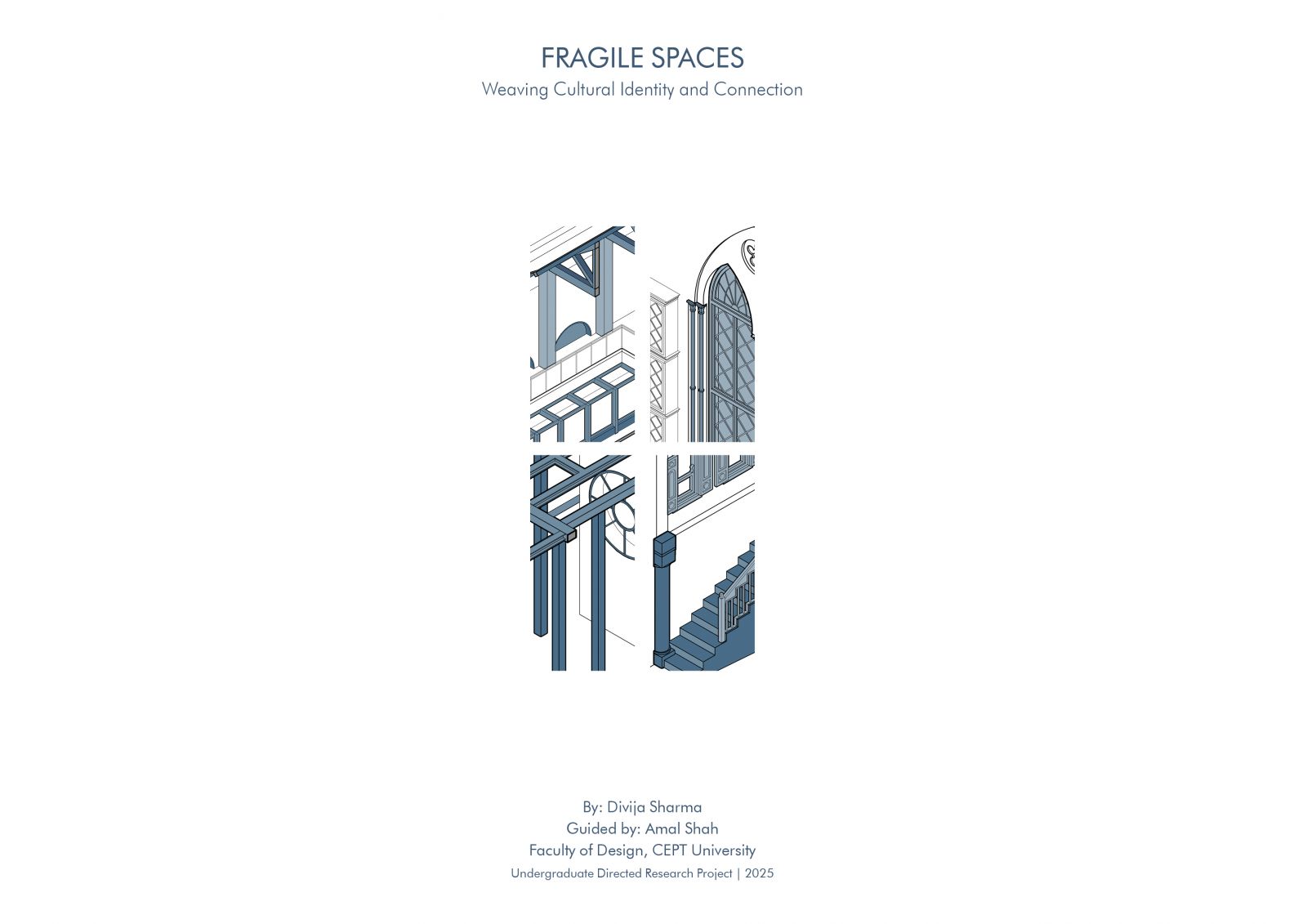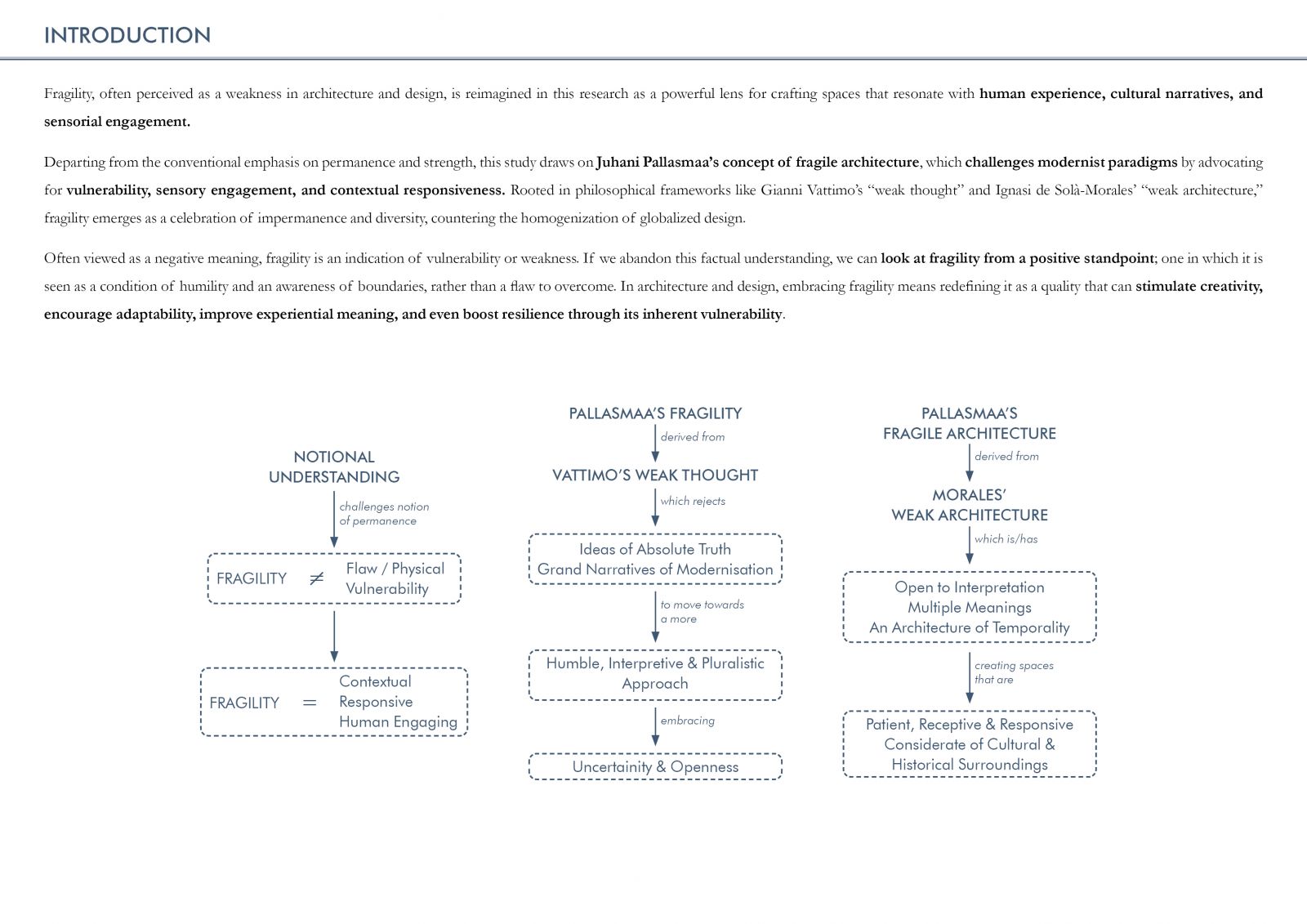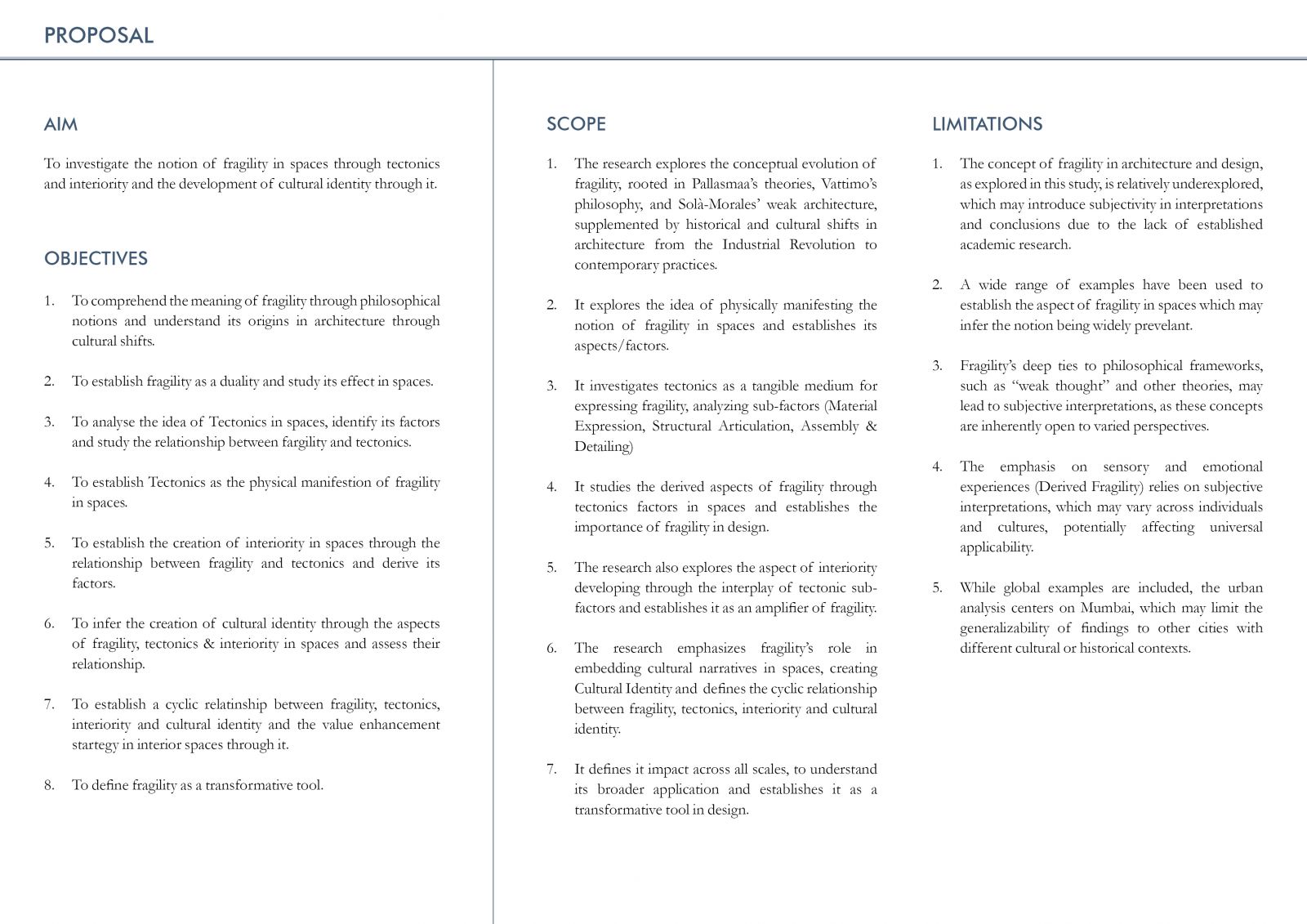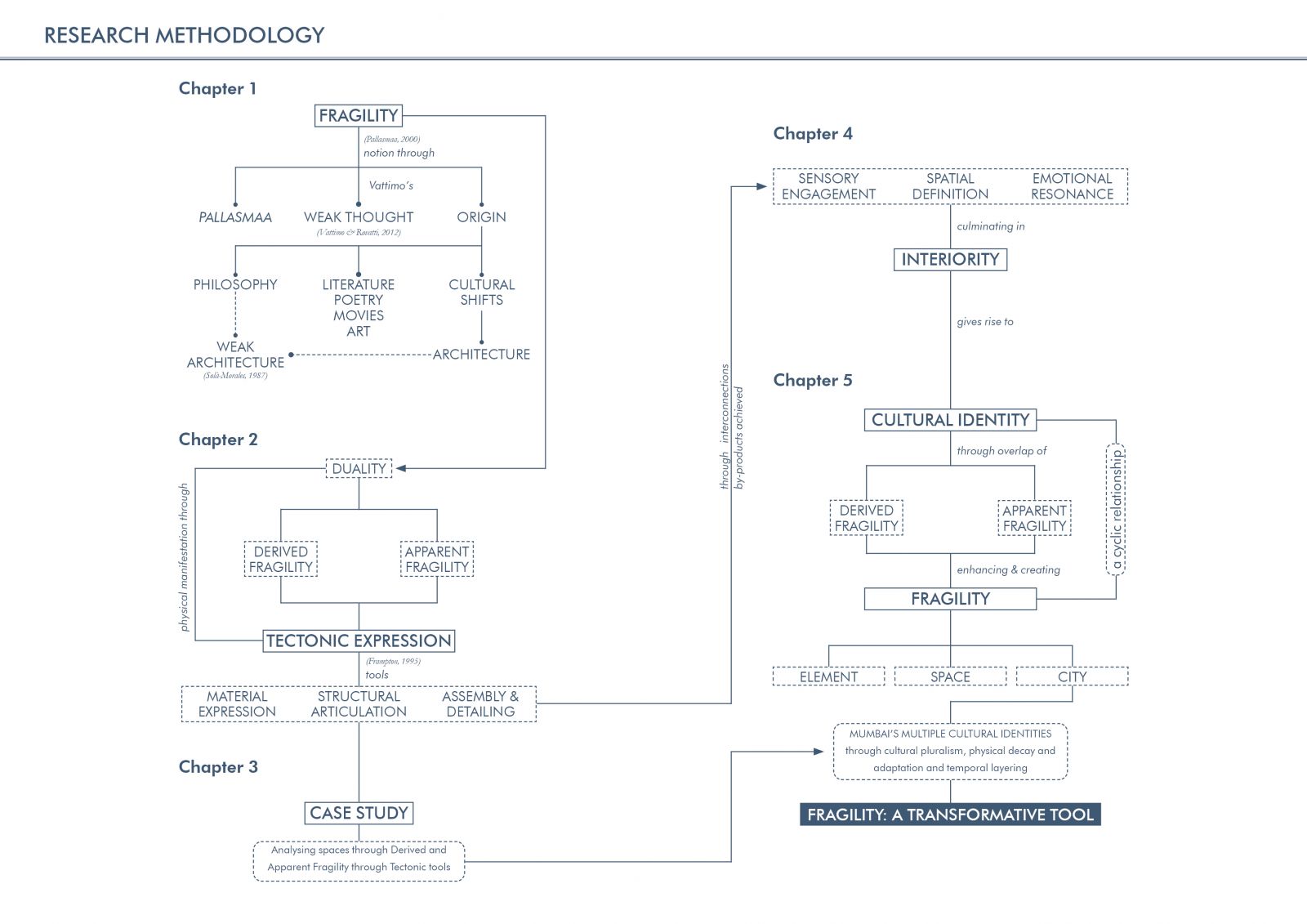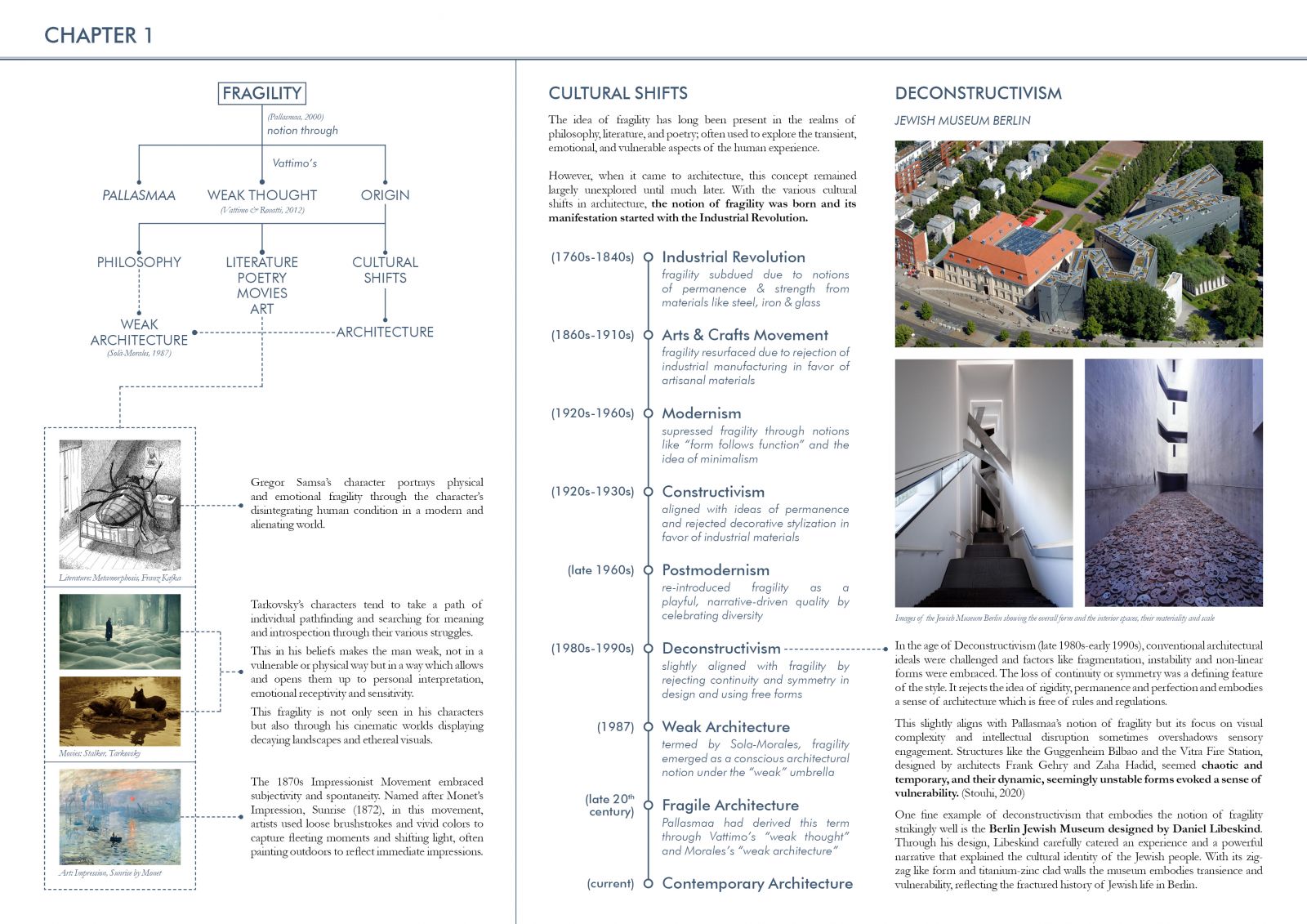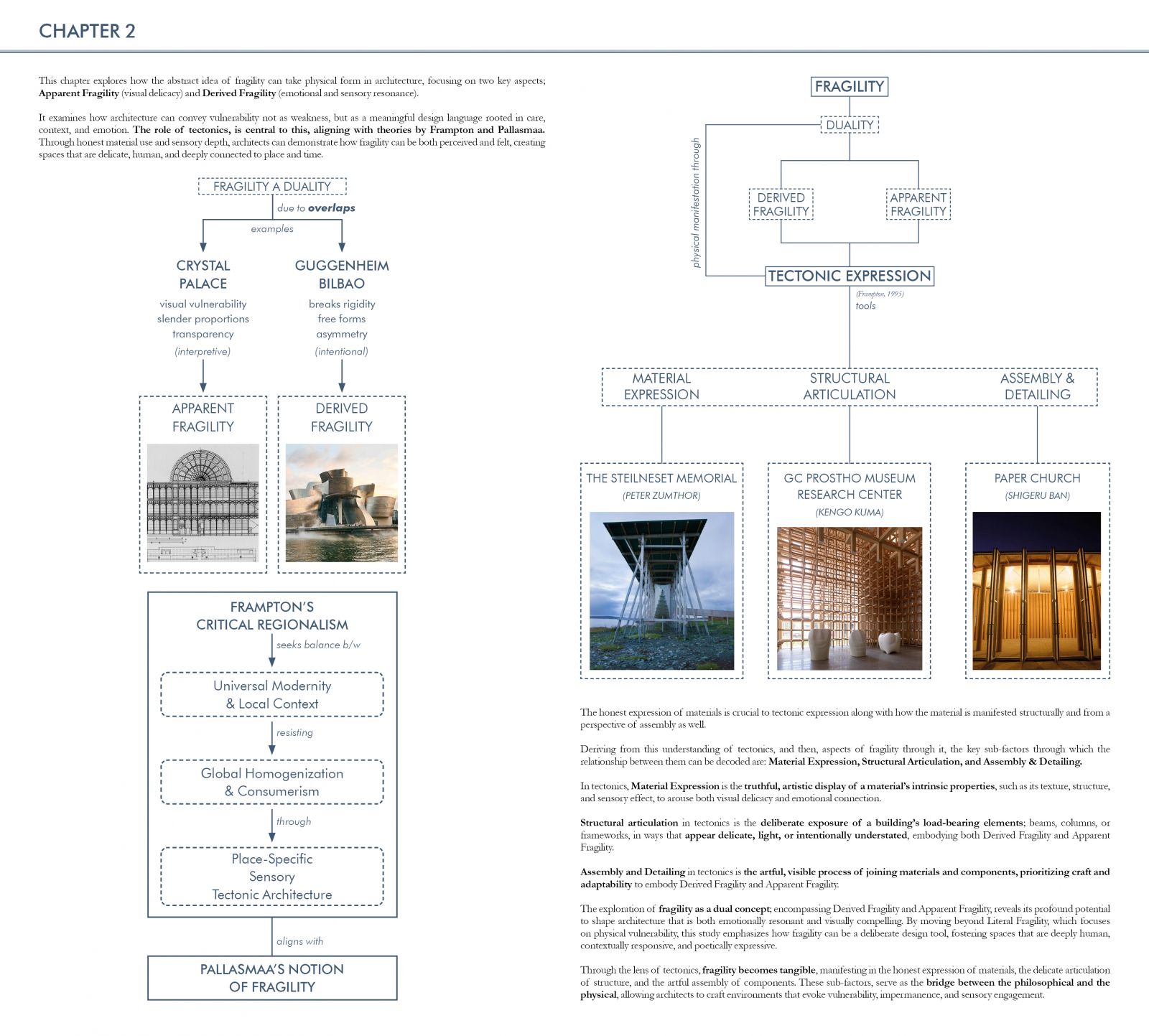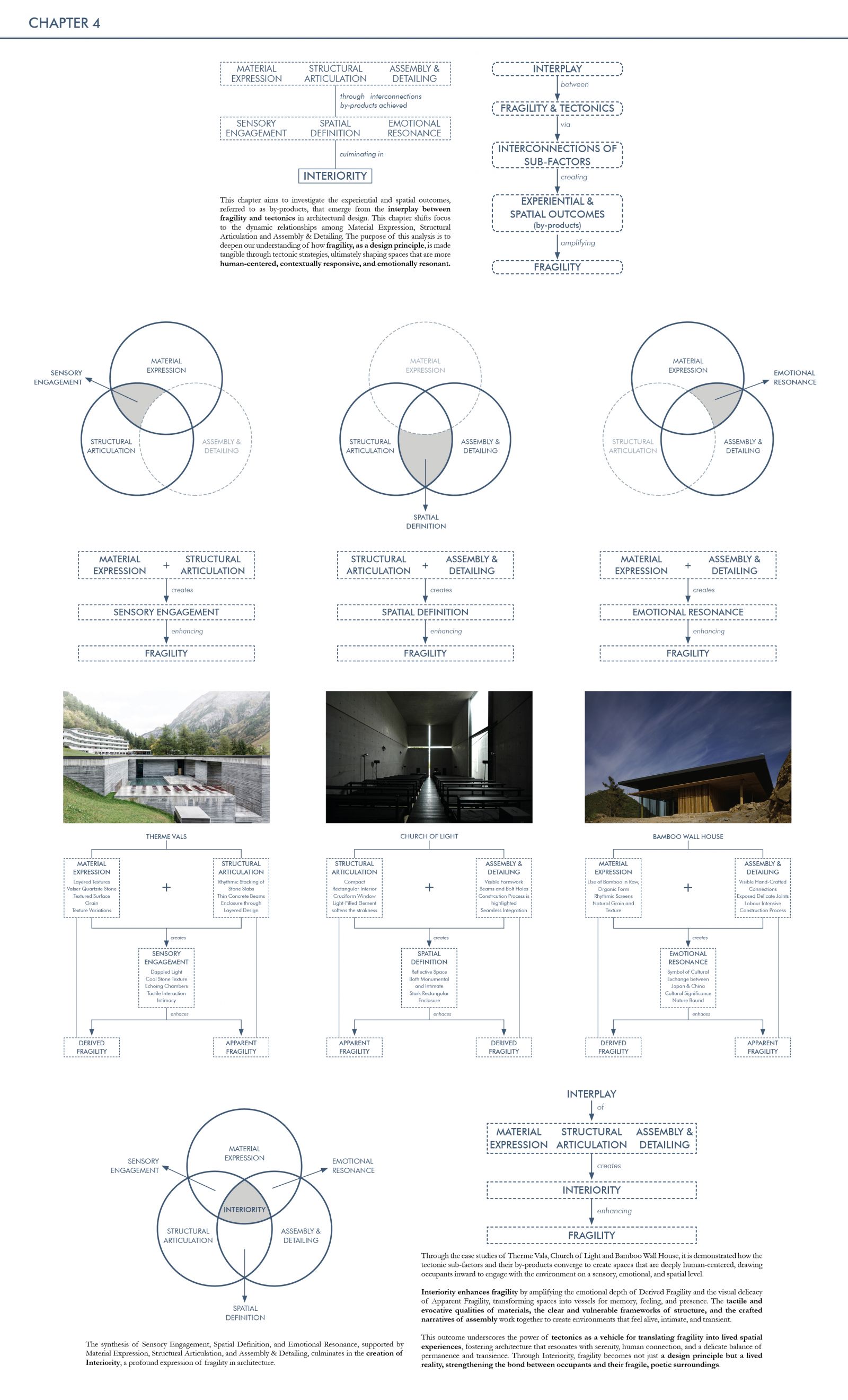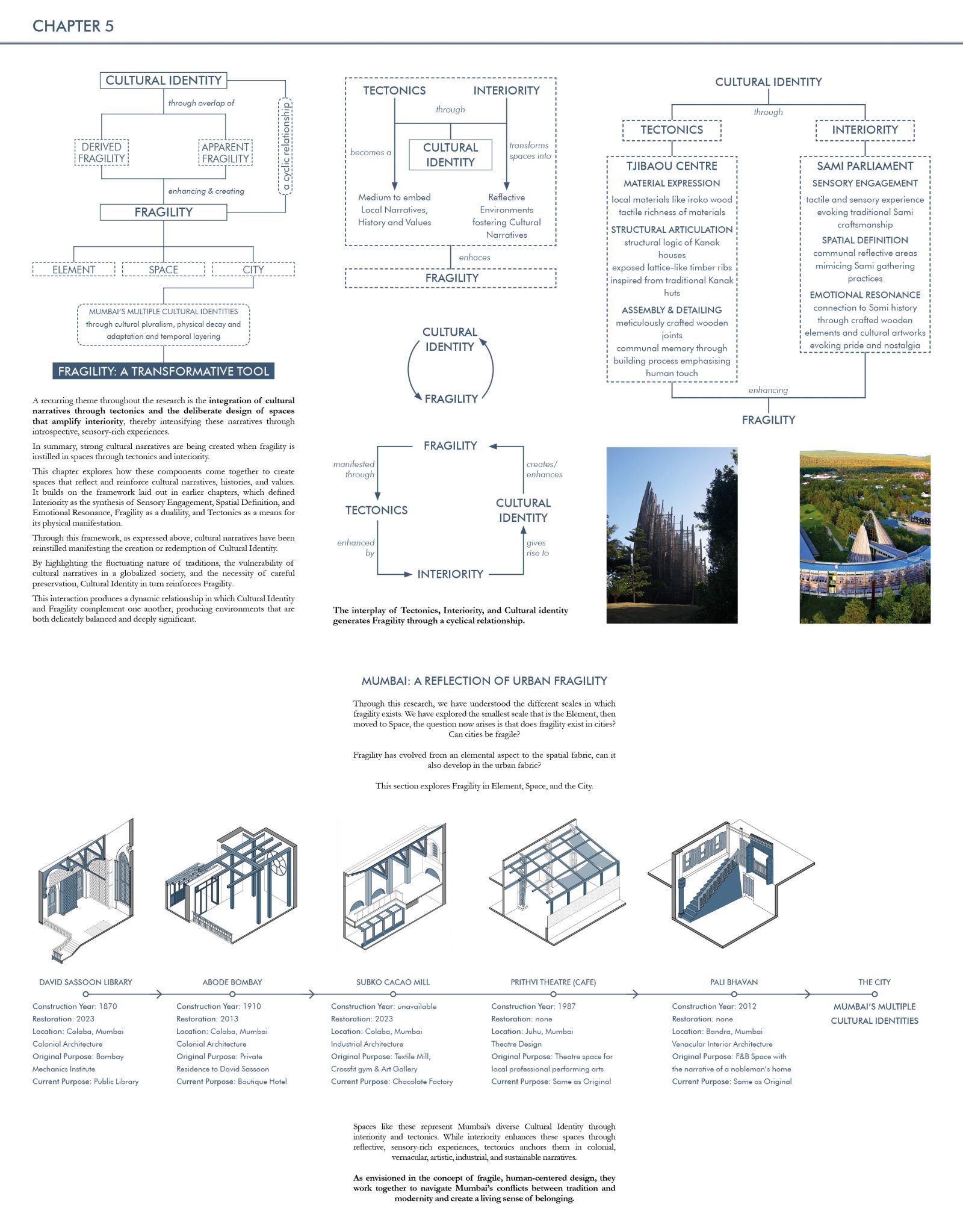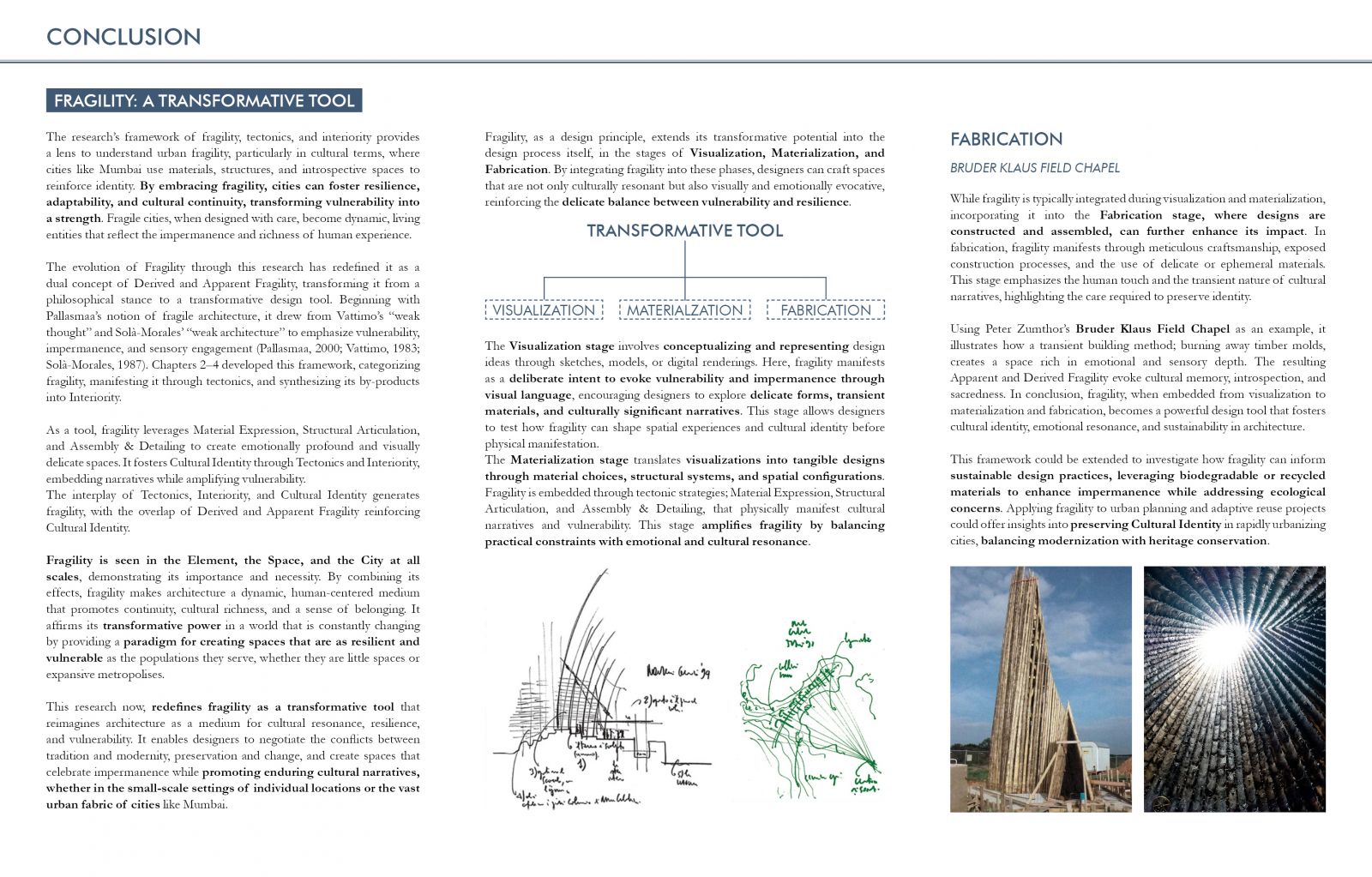Your browser is out-of-date!
For a richer surfing experience on our website, please update your browser. Update my browser now!
For a richer surfing experience on our website, please update your browser. Update my browser now!
FRAGILE SPACES: Weaving Cultural Identity and Connection
This research redefines fragility in architecture not as a flaw, but as a profound design tool that fosters cultural identity, emotional resonance, and human connection. Drawing from philosophical foundations such as Juhani Pallasmaa’s notion of fragile architecture, Gianni Vattimo’s weak thought, and Ignasi de Solà-Morales’ weak architecture, the study frames fragility as a dual concept; Derived Fragility (emotional and sensory depth) and Apparent Fragility (visual and perceived delicacy). Through an exploration of tectonics, the poetics of construction, this research identifies key factors like Material Expression, Structural Articulation, and Assembly & Detailing to understand how fragility is physically manifested in architecture. These through their interconnections are linked to by-products such as Sensory Engagement, Spatial Definition, and Emotional Resonance, culminating in Interiority; a layered, introspective spatial quality. Using case studies and a detailed analysis of spaces in Mumbai, the research demonstrates how fragility, expressed through tectonic strategies, can anchor cultural narratives and promote contextually responsive, emotionally rich design. Ultimately, it proposes fragility as a transformative framework that reorients architectural practice toward humility, impermanence, and belonging in a rapidly globalizing world.
